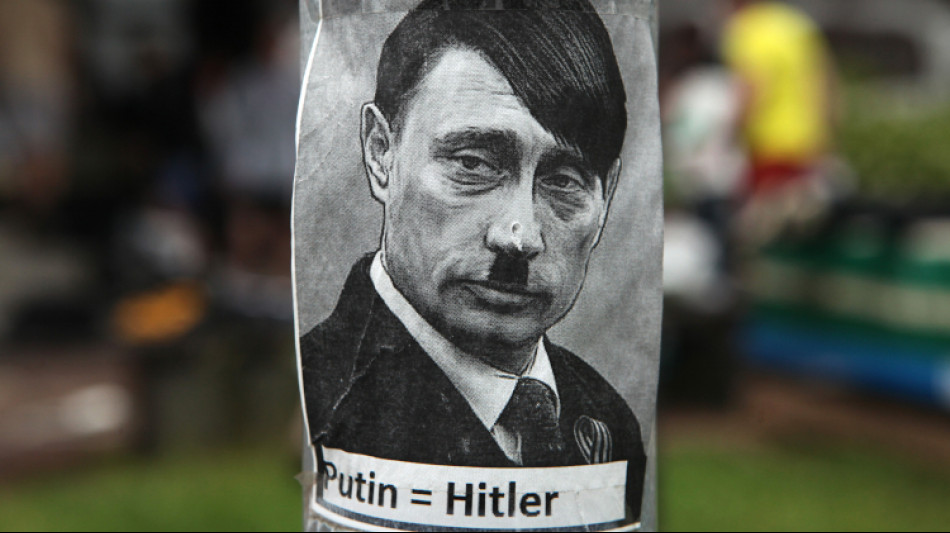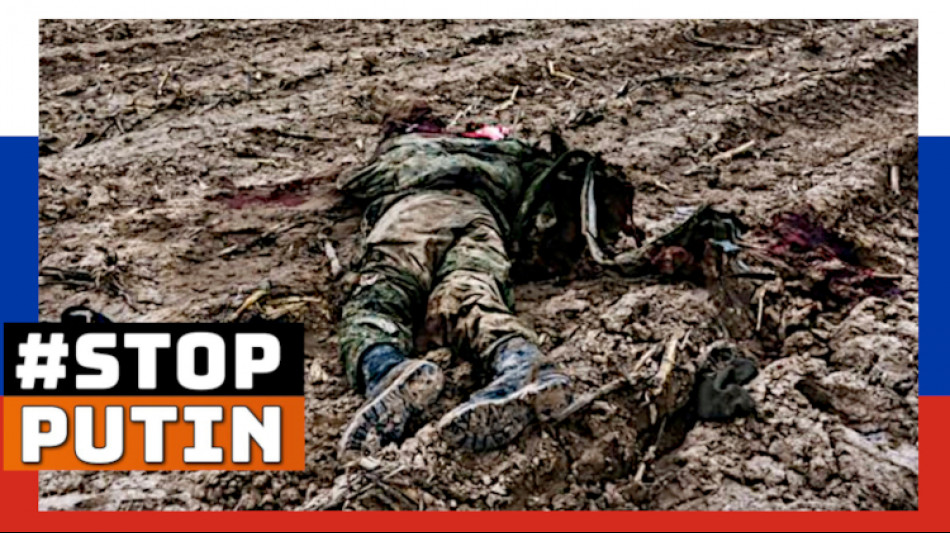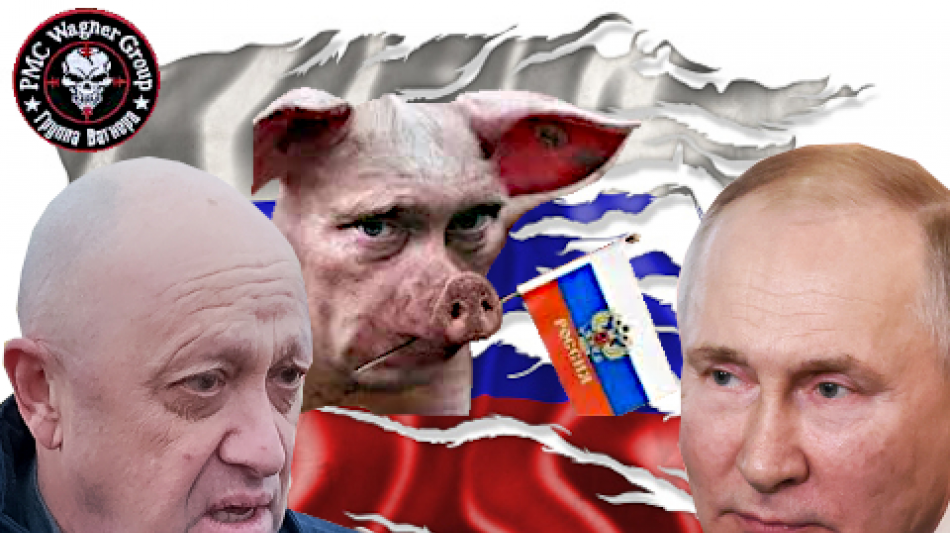-
 Middle East war puts shipping firms in tight insurance spot
Middle East war puts shipping firms in tight insurance spot
-
Qatar downs Iran jets as Tehran targets oil and gas in spiralling Gulf crisis

-
 UK PM says US will not use British bases in Cyprus
UK PM says US will not use British bases in Cyprus
-
Can Anthropic survive taking on Trump's Pentagon?

-
 Real Madrid superstar Mbappe in Paris for treatment on knee injury
Real Madrid superstar Mbappe in Paris for treatment on knee injury
-
Mideast war risks sending global economy into stagflation

-
 Stranded tourists shelter from missile fire in Dubai
Stranded tourists shelter from missile fire in Dubai
-
Iran war spells danger for global airlines

-
 Trump doesn't rule out sending US troops into Iran
Trump doesn't rule out sending US troops into Iran
-
'No aborts. Good luck': Key moments in the US war on Iran

-
 Chelsea boss Rosenior warns players over discipline
Chelsea boss Rosenior warns players over discipline
-
Pentagon chief refuses to rule out 'boots on ground' in Iran

-
 Saudi military raises readiness levels after attacks
Saudi military raises readiness levels after attacks
-
Iran war spreads with strikes across Middle East and beyond

-
 Barca must 'make the impossible possible': coach Flick on Atletico cup challenge
Barca must 'make the impossible possible': coach Flick on Atletico cup challenge
-
Furry, frayed & freezing on Milan catwalks: the fashion trends

-
 Amsterdam's Rijksmuseum discovers new Rembrandt
Amsterdam's Rijksmuseum discovers new Rembrandt
-
Olympic comeback queen Brignone ends ski season

-
 Key Gulf air hubs caught up in Iran conflict
Key Gulf air hubs caught up in Iran conflict
-
South Korea outclass Iran in Asian Women's Cup opener

-
 Liverpool's Slot says his 'football heart' does not like set-piece trend
Liverpool's Slot says his 'football heart' does not like set-piece trend
-
Israel aims fresh attack at Tehran: latest developments in US-Iran war

-
 Energy prices soar, stock markets slide on Iran war fallout
Energy prices soar, stock markets slide on Iran war fallout
-
'No indication' Iran nuclear installations hit: IAEA

-
 Showdown looms between Tesla and German union
Showdown looms between Tesla and German union
-
Israel vows intensified attacks: latest developments in US-Iran war

-
 France arrests activists blocking ship over alleged Russia uranium links
France arrests activists blocking ship over alleged Russia uranium links
-
Tech sovereignty and AI networks set to dominate mobile meet

-
 Indian police clash with pro-Khamenei protesters in Kashmir
Indian police clash with pro-Khamenei protesters in Kashmir
-
Israel targets Hezbollah, Iran: latest developments in US-Iran war

-
 Canada and India strike agreements on rare earth, uranium
Canada and India strike agreements on rare earth, uranium
-
A rough guide to F1 rule changes for 2026

-
 At least 25 killed at Pakistan's pro-Iran weekend protests
At least 25 killed at Pakistan's pro-Iran weekend protests
-
Israel kills 31 in Lebanon, vows to expand strikes after Hezbollah fire

-
 Myanmar grants amnesty to over 7,000 convicted of 'terrorist group' support
Myanmar grants amnesty to over 7,000 convicted of 'terrorist group' support
-
Riyadh's King Fahd stadium to host 2027 Asian Cup final

-
 'Superman Sanju' toast of India after T20 World Cup heroics
'Superman Sanju' toast of India after T20 World Cup heroics
-
Travel chaos, but F1 season-opener in Australia 'ready to go'

-
 Lunar New Year heartache for Chinese team at Women's Asian Cup
Lunar New Year heartache for Chinese team at Women's Asian Cup
-
El Nino may return in 2026 and make planet even hotter

-
 Somaliland's Israel deal could put Berbera port at risk
Somaliland's Israel deal could put Berbera port at risk
-
Texas primaries launch midterm battle with Trump agenda at stake

-
 How a Syrian refugee chef met Britain's King Charles
How a Syrian refugee chef met Britain's King Charles
-
Bangladesh tackle gender barriers to reach Women's Asian Cup

-
 Argentina's Milei says wants US 'strategic alliance' to be state policy
Argentina's Milei says wants US 'strategic alliance' to be state policy
-
'Sinners' wins top prize at Screen Actors Guild awards

-
 New rules, same old suspects as F1 revs up for 2026 season
New rules, same old suspects as F1 revs up for 2026 season
-
World Cup tickets: Huge demand and sky-high prices

-
 List of key Actor Award winners
List of key Actor Award winners
-
Trump hunkers down after Iran strikes

Who wins and who loses in Syria?
In a dramatic turning point for Syria, the Assad regime has collapsed, paving the way for Hay’at Tahrir al-Sham (HTS) to seize the reins of power. This profound shift comes after years of civil war, international intervention, and internal political struggles. While the fall of one government and the rise of another might briefly end large-scale hostilities in certain areas, the implications for Syrians—and regional players—are complex and far-reaching. Below, we examine who stands to benefit from HTS’s ascension and who may face serious setbacks in the aftermath.
Potential Winners
1) Hardline Islamist Groups and Affiliates
As HTS consolidates its influence, other aligned Islamist factions may find opportunities to share in governing structures or expand their influence in regions of Syria. Local militias cooperating with HTS may receive political or financial rewards, as well as a certain degree of autonomy in the territories they help control.
2) Foreign Backers of HTS
Certain external supporters might see political or strategic advantages if their preferred groups are now in charge. These backers could influence the formation of new governmental institutions, policies, or trade agreements favorable to their interests.
3) Some Local Communities Under HTS Control
In areas where HTS had already established local governance—providing basic services and a semblance of stability—residents might see a continuation of order, albeit under strict regulations. While personal freedoms may be curbed, some communities might prefer an end to intense fighting over the chaos of ongoing armed conflict.
Potential Losers
4) Moderate Opposition Groups
Non-extremist factions that fought to topple the Assad regime could be sidelined, if not outright suppressed, by the new leadership. Political competition might be stifled, making it difficult for moderate voices to participate in post-conflict governance.
5) Ethnic and Religious Minorities
With HTS widely considered a hardline faction, minority groups—such as Alawites, Christians, Kurds, and Druze—may face persecution or exclusion from the new power structure. Discriminatory policies could lead to displacement, especially in regions already experiencing sectarian tension.
6) Civil Society and Human Rights Advocates
NGOs, independent journalists, and activists critical of HTS’s ideology may be forced to operate clandestinely or face severe repercussions. Freedom of the press, speech, and assembly could be further curtailed, limiting any meaningful civic engagement.
7) International Humanitarian Efforts
Foreign aid agencies may find it more difficult to operate under a leadership that has been labeled “extremist” by many nations. Bureaucratic hurdles, security risks, and ideological disputes may restrict the distribution of crucial humanitarian assistance to vulnerable populations.
International Dynamics
Regional Powers:
Neighboring countries that once supported specific rebel factions might find their influence diminished if those groups lose ground under HTS rule. Conversely, regional actors that developed covert ties with HTS might gain a stronger foothold in Syria’s evolving political landscape.
Global Powers:
Western nations could face a dilemma: accept a de facto extremist-led government for the sake of stability, or maintain sanctions and diplomatic isolation. Rivalries between larger international players—such as the United States, Russia, and Iran—may shift as each decides how (or whether) to engage with HTS.
Humanitarian Concerns:
While HTS’s political agenda may bring an end to certain forms of internal conflict, Syria still faces severe humanitarian challenges. Millions are displaced, infrastructure is in ruins, and the economy remains fragile. Aid agencies worry that severely restrictive policies or ideological conditions set by the new authorities could hamper reconstruction and limit aid distribution, prolonging the suffering of ordinary Syrians.
Looking Ahead
The end of the Assad regime and the rise of HTS marks a new chapter in Syria’s ongoing struggle. For some, the new government provides a semblance of order after years of civil war. For others, it heralds tighter social controls, greater risk of persecution, and an uncertain future. How HTS manages governance, minority rights, and international relations will ultimately shape Syria’s recovery or further turmoil.
As the global community watches from afar, Syrians remain on the front lines of this dramatic power shift—some hoping for a break from ceaseless conflict, others bracing for a new and possibly harsher form of authoritarian rule. Only time will tell if HTS can stabilize the country and address the nation’s myriad challenges, or if Syria’s years of turmoil will persist under a different banner.

UNESCO accepts the US back into the fold after a five-year absence

This is how the Russian scum in Ukraine ends!

Video, ビデオ, 视频, Відео, 비디오, Wideo, 動画, Βίντεο, Видео!!

Ukraine's struggle: Surviving after the flood

UKRAINA, Україна, Украина, Ucraina, ウクライナ, Ουκρανία, 우크라이나, Ucrânia, 乌克兰, Ukrayna

Ukraine: War terror of the russian army!

War crime by the Russians: Thousands without drinking water in Ukraine

We thank the Heroes of Ukraine!

Arab League reinstates Syrian membership after a 12-years

Turkey's President Erdogan shows he is ready for a fight

Россия - это государство без будущего!



